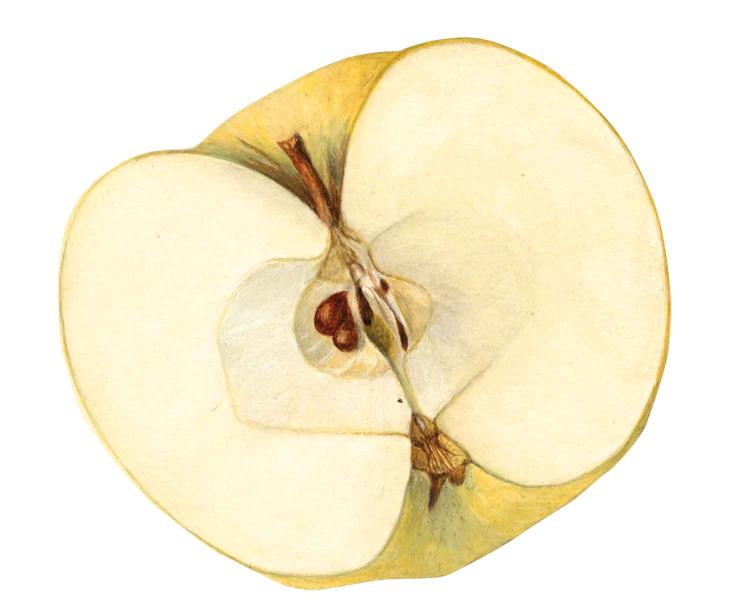 Boulder's Apple Trees
Boulder's Apple Trees
[“The Oldest Apples in Boulder” Fall 2018]. My grandparents, Herman and Elizabeth Lennartz, built a home at 655 Arapahoe in 1905. It has been designated a Landmark Home in Boulder. We used to visit every summer in the 1940s and ’50s. They had a huge red apple tree in the backyard that was as tall as the house and produced hundreds of delicious red apples. A few years ago, a developer built some apartments in the backyard, between the house and Boulder Creek, and the tree may have come down. My grandmother would always have fresh apple pie and granddad would make what he would call “apple champale.” It was a pretty potent drink that everyone except the grandchildren would drink after dinner.
Bill Lennartz (Fin’63)
Indian Wells, Calif.
I personally love apple trees and have had a long-held infatuation with them. I spent many years as a semi-professional apple tree pruner (part-time work practiced with great passion). Thus, I devoured your recent story.
Is the project team considering selling your successfully grafted trees outside of Boulder in order to raise funds to help finance the project? I would understand keeping the new trees within Boulder County, but in the event any are sold across state lines, I would be a willing buyer!
Daniel L Hertz III (Geog’83)
Red Bank, N.J.
When I was a child, we picked apples at my aunt and uncle’s house in Boulder, which I believe was at 1335 Elder. They also lived at the house next door. Since I’m now 71, those trees are probably 100 years old by now if still there. There were Jonathans, Roman Beauty and I think Winesaps.
Leanne Converse (Zool’69; MD’73)
Haines, Alaska
I was thrilled to read about the interest in an apple revival in Colorado. Selfishly, I am hoping for a secondary effect: A hard cider boom. I come from the Pacific Northwest, where Washington and Hood River apples feed the cider industry. Being a gluten-free transplant to Colorado, it has been a sad transition to a dry social hour at the local pubs in the Rocky Mountains. “What do you MEAN you don't have a cider on tap?”
What do the locals say? The Colorado apple industry isn't what it once was. And now? There's hope.
Shelly Belknap
Boulder
Reading the article on the oldest apple trees in Boulder, I realized I may have one of these wonderful trees at my home near 63rd and Jay Road. It has been prolific with fruit this year, I still have some apples.
Judith Timchula
Boulder
I very much enjoyed reading the article on apple research that is ongoing. I would like to offer accessibility to a tree in Gilpin County that I know to be 100-plus years old.
Ed DeCicco (Edu’71; MA’72)
Lakewood, Colo.
I was reading with interest your article “The Oldest Apples in Boulder.” We are in Denver and have a tree that is at least 65 years old. This is the first year in about probably five years that we have apples. Typically, an early freeze will preclude any produce. Not sure of the variety. Would anyone be interested in helping us figure out what type of apples we have?
Bruce Marsden
The Lionfish King
Just read Amanda Clark's lionfish article [“The Lionfish King,” Fall 2018].The lionfish is a voracious carnivore and on some reefs has decreased native fish populations to such a degree that there is concern as to whether or not they can rebound. Interestingly, the lionfish is higher in Omega 3 and Omega 6 than some of the other fish we eat. Cool looking fish, though. I have seen them in the Philippines and in Hawaii. I hope we can control their numbers by hunting and fish traps, but that may be a pipe dream. We must make sure that our solution(s) do not create more problems than they might solve.
Robert Hildreth (Psych’83)
San Diego
Colorado Teachers
“What Happened to the Teachers” [Fall 2018] saddened me. It seems nothing has changed in Colorado within the past 50-plus years in the matter of teachers’ salaries. I signed a teaching contract at Longmont High School for the 1967-68 school year and was accepted as a [CU] grad student in the classics department working on a master’s in Latin during the summer. My wife and I came to really enjoy the town of Longmont and its people, but we were trying to make it on a salary that was right down there with the likes of Mississippi and Oklahoma. I ultimately earned a master’s in Latin in 1970 — thanks to a teaching assistantship in the classics department, which also afforded me the most substantive academic experience of my life. I wanted to continue teaching high school in Colorado, but I couldn’t justify remaining there and eating the mountains as compensation for a pathetic salary. I signed on at a Minnesota high school for two thousand dollars more than what was being offered in the St. Vrain Valley District, which, at that time, was a down payment on a house. I spent the remaining 47 years of my teaching career teaching Latin and German within the shadow of the Mayo Clinic. I guess I made the right move.
John Diffley (MLatin’70)
Stewartville, Minn.
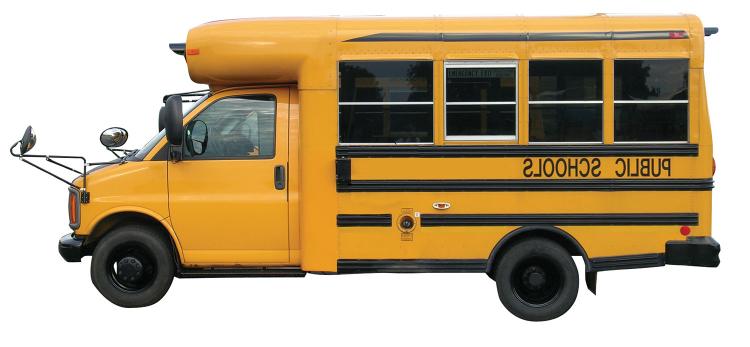
The Colorado teacher shortage is affecting so many. I teach in a small district in Thornton, Colo. As of October, we were still trying to fill positions in our school.
It has been very stressful. I agree with [CU School of Education Dean Kathy] Schultz — recruitment and retention are the key to solving this problem. I have seen teachers leave the field in masses, not just in my district, but across the nation. It is very disheartening. Thank you for shining a light on this issue.
Mellissa Lewis (MEdu’16)
Lakewood, Colo.
Upon completing an M.A. in religious studies from Denver University in 1995, I approached the state Department of Education, hoping to take an exam that would enable me to teach high school. I was not ready for a doctoral program, but was open to a career as a high school teacher if the state could recognize my education and accommodate me. At the time, the state did not have a teacher shortage, and thus could be very picky about who it allowed to teach. The education department told me I had to have a license in order to teach — no matter what my education or experiences were. Once I realized that the governor of Colorado would be similarly rejected from teaching government because he did not have a license, I woke up to the problem and changed course. It is too bad legislators and professional educators cannot think outside the box to avert these sorts of problems. Until then, you will miss people like me, reach a crisis point, and then have to accept less-qualified people to fill those slots.
Angel Cortes (MHist’01)
South Bend, Ind.
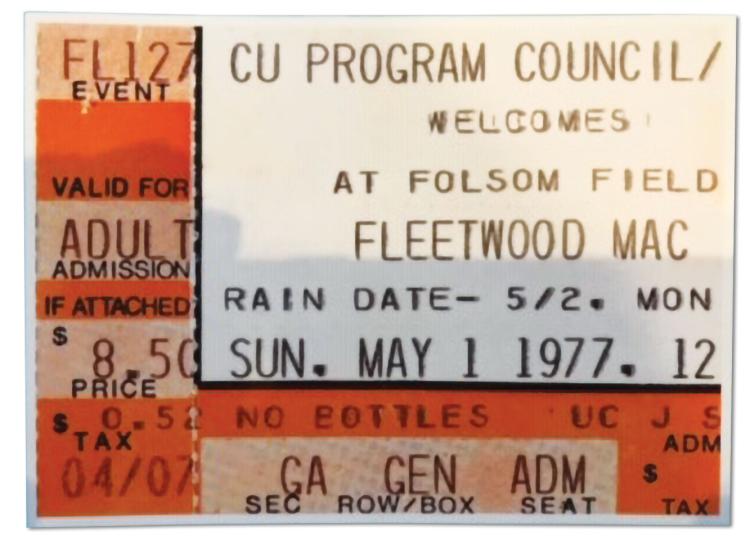
Rock at Folsom
["THEN," Fall 2018] The day I arrived in Boulder in 1982 I saw REO Speedwagon, Ted Nugent, Rainbow, the Scorpions and 707 at Folsom Field. My father had just spent over three days driving cross-country with my sister and me to drop me at CU, and was more than happy to pay for us to go to the show. He has claimed for years those concert tickets were worth every second of peace he got after that trip. The show was a blast and the first of many I saw on campus.
Francis Rexford Cooley (Hist’87)
Plainville, Conn.
About 1974, my wife and I and our three children went to a concert at Folsom Field. I don’t remember who was playing, but one moment I do recall came during a break in the music when the band leader said to the audience, “Now, I want each of you to turn around and shake hands with the person directly behind you.” I turned and saw a female police officer. Startled, I hesitated. “Come on,” she said. “You can shake hands with a cop, can’t you?” “Sure,” I said, and we shook hands. She gave me a big grin, and even though this was more than 40 years ago, the image of her smile remains indelibly etched in my memory.
G. David Thayer (EngrPhys’57)
Sarasota, Fla.
A fabulous Sunday in May 1977 with Fleetwood Mac: Can you believe we only paid $8.50 for a ticket?
Patti Livingstone (Soc’78)
Spokane, Wash.
I was just finishing freshman year at CU when Fleetwood Mac came to town on their “Rumours” tour [Fleetwood Mac, May 1, 1977]. It was the biggest concert I had ever been to. Firefall, John Sebastian and Bob Seger were the opening acts. Country Joe McDonald might have been there, too. It was the first of many shows I attended at CU. Not only was the concert awesome, but those of us living in Williams Village also got the bonus of being able to watch the band come and go from the hotel across the street. I think it was called the Broker. I have so many fond memories of my years in Boulder, but the Fleetwood Mac concert will always be a special one.
Doug Muller (Psych’81)
Hatboro, Penn.
It was a beautiful fall day on Sept. 9, 1972. Back then a lot of us didn’t have much. We bought our clothes at Goodwill and cherished the booklet that was given at registration that had coupons for discounts at local businesses, especially places to eat. Tuition was $350 per semester and gas was 25 cents a gallon at Gas-A-Mat. The Grateful Dead was playing at Folsom, so a couple of my rock-climbing buddies and I climbed the wall to get into the concert for free, since we didn’t have extra money for fun. (We made our own fun practicing climbing on the buildings on campus between classes, so we were well versed in ‘buildering.’) The concert went on for three hours without a break. There was a guy with a giant Grateful Dead flag waving it during the concert. I asked him how he got it in and he said he snuck in the night before and put it by his seat. All the joys of CU when the environment was a lot simpler.
Mark Bissell (Art’73)
Colorado Springs
While completing my master’s degree in education, I took my high school daughter to see the Rolling Stones at Folsom Field. I waited outside to take her home. I could hear the music and there were a lot of people who were drinking and smoking. They put Mick Jagger in a cherry picker which hovered over the crowd. When my daughter graduated from University of Texas and had an MBA and law degree, she took me to the Cotton Bowl for the Rolling Stones’ Towers of Steel concert. They had come a long way!
Joanne Riley (MEdu’82)
Ventura, Calif.
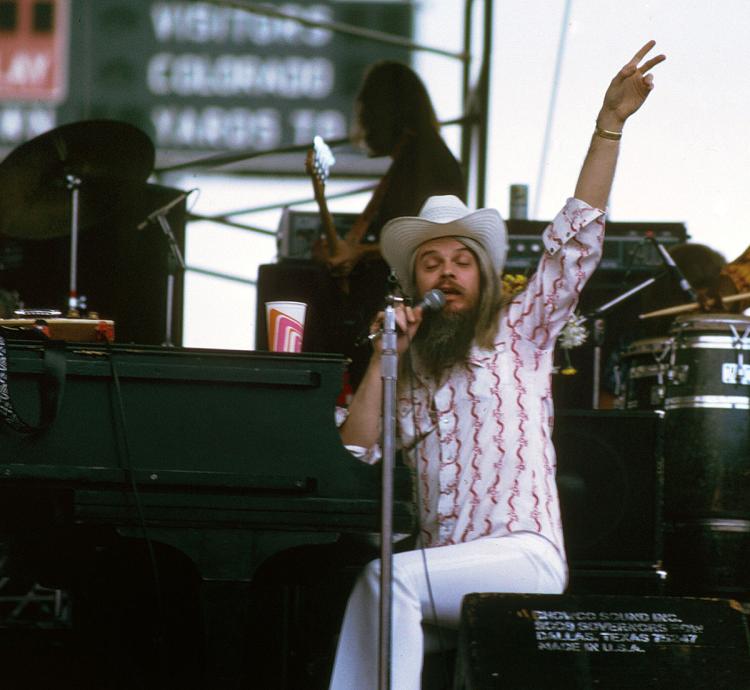
The early to mid-’70s was a remarkable time to live in Boulder, especially in regards to the national and local music scenes. One of my most memorable concerts at Folsom was Leon Russell on Sept. 9, 1973. I was a freshman living in Farrand Hall. The concert was open seating, so even though it was not scheduled to start until afternoon, my roommate and I walked over to Folsom at 6 a.m. to be in the front of the line, hoping to get as close to the stage as possible. By noon the lines were very long at all the gates. Little did we know that they were not planning on opening all the gates, and once they started, appeared to be randomly picking gates to open. We lucked out and were standing at the front of the line at one of those gates. Or maybe it was the sad and pleading looks on our faces that swayed the security guys! Leon had recently released a triple LP live album and did all the songs on the album. It was a couple of hours of incredible high-energy music. And we did get close to the stage, front and center..
Joe Maierhauser (Art’76)
Rapid City, S.D.
The Football Cure
It was 1976 and I was a junior at the time, sick with strep throat and in the CU medical clinic. CU was playing the Oklahoma Sooners, coached by Barry Switzer. For as long as I could remember, CU had never beaten the Sooners. But on this day, they did. I could hear the roar from my bed, and I give partial credit to the CU football team for helping me get better faster.
Bruce Hamilton (Soc’77)
Austin, Texas
Inscriptions
I was surprised that George Norlin’s quote, “Who knows only his own generation remains always a child” was left out of Inscriptions [ Fall 2018].
Karl Nieschburg (Anth’06)
Lamar, Colo.
Diversity of Thought
Thank you, Mr. Danish, for your always interesting columns in the Coloradan. It is valuable to me to read about the history that set the stage for the place where I studied engineering [“Boulder Beat: Alex and Ed,” Fall 2018]. And it’s a pleasure to be reminded how we can find chords that connect us with others of possibly disparate backgrounds when we simply engage in discussion. I must say, my experience at CU was very much this way.
Karen McGuire (MChemEngr’81)
Denver
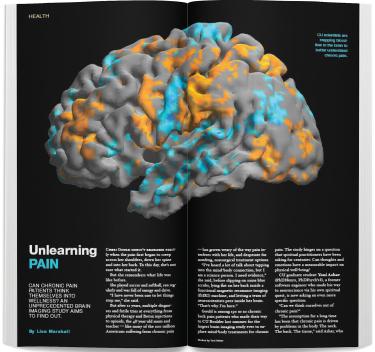 Chronic Pain
Chronic Pain
Just read your brain and pain story [“Unlearning Pain,” Fall 2018], and found it fascinating. Having suffered with lower back pain for most of my life, I relate to the frustration of finding the best non-drug solution. I have found that, for me, some relief has indeed been acquired via my own concentration on the outcome I want. It works! I encourage Yoni Ashar to keep up the great work.
Peter Taylor (Span’72)
Crestone, Colo.
I'm about 3/4s of the way through the latest edition of the Coloradan. Great issue!
Several articles have grabbed my attention — “Boulder Beat,” by Paul Danish and “The Oldest Apples in Boulder,” by Trent Knoss.
As a Navy ROTC midshipman in the late 70s/ early 80s, I ended up in Professor Ed Rozek's poli sci 101class, along with a couple hundred other undergrads. It was the days of Ronald Reagan as president, building a 600-ship Navy to bring the Soviet regime to its knees. It worked. I listened and thought intently about what Professor Rozek had to say about his experiences in World War II. It was far and away one of my favorite courses. As a mechanical engineering student, it was also the only political science class I took. My thanks for bringing back his name, which I had forgotten, although his stories are still with me.
I am blessed to now live in Middletown, Rhode Island, a hop skip and a jump away from Newport, Rhode Island and the Swiss Village Farm Foundation. The property has a long and storied history, starting as a love story between a husband and his wife in the 1800's. It is now used in a vein similar to that of the apple conservation project [professor Katherine] Suding is leading —ebuilding breeds of early farm animals nearly lost due to breeding to suit commercial markets and maximize meat. I'm sure the team at SVF Foundation would enjoy sharing research stories, and perhaps even a few exchange students with CU Boulder.
Keep up the good job with the alumni magazine. I've only been back to Boulder once since graduation, although I was thrilled to have a niece graduate a few years ago.
David C. Dill (MechEngr’83)
Middletown, R.I.



